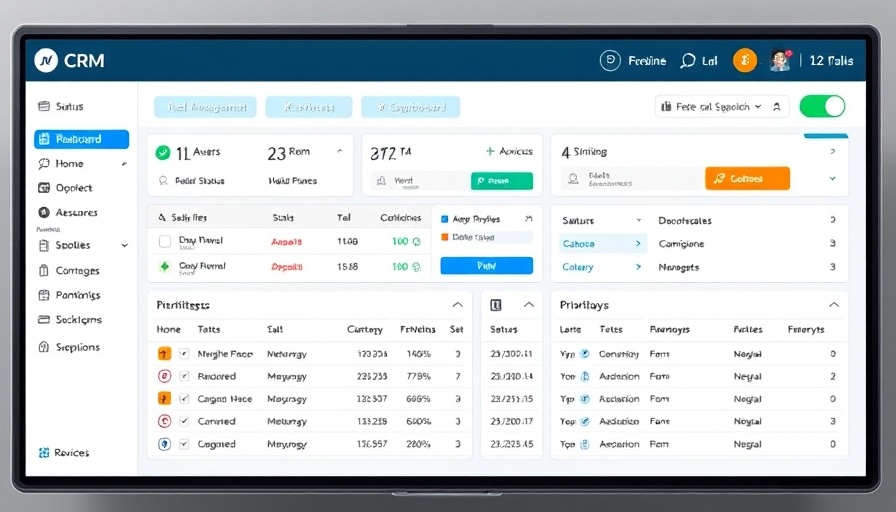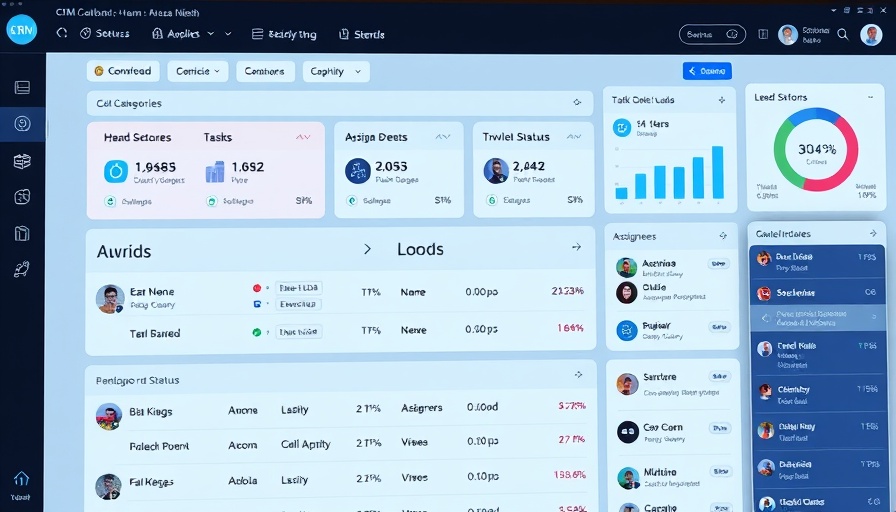
Why CRM Features Are Vital for Growth in 2025
As businesses aim to enhance their operational efficiency and customer engagement strategies, selecting the right Customer Relationship Management (CRM) system becomes a pivotal decision. In 2025, mid-sized business owners, particularly those generating between $2 million and over $10 million in annual revenue, will find themselves navigating a landscape that constantly demands innovation and agility. Choosing a CRM with the right features can transform chaos into streamlined workflows, ultimately facilitating a smoother path toward sustained growth.
Must-Have CRM Features for Mid-Sized Businesses
When assessing CRM systems in 2025, several essential features can set an organization apart. The following elements focus on enhancing collaboration, refining processes, and spearheading product development.
1. Advanced Automation Capabilities
Your CRM should do more than just store contacts. Look for systems offering robust automation capabilities, allowing you to automate repetitive tasks such as email responses and lead tracking. This not only boosts efficiency but also minimizes human error, enabling your team to spend more time on strategic activities that drive growth.
2. Integrated Project Management Tools
Dedicated project management tools within the CRM can significantly improve visibility and accountability. Features like task assignments, deadline tracking, and team collaboration interfaces can ensure that everyone is on the same page throughout the operational lifecycle, enhancing productivity and leading to more successful project completions.
3. Customizable Dashboards and Reports
Every business has unique metrics that define success. A CRM with customizable dashboards allows you to track your specific goals effectively. By visualizing metrics and generating reports tailored to your key performance indicators (KPIs), you can make data-driven decisions and pivot strategies as necessary.
4. Enhanced Customer Journey Mapping
Understanding the customer journey is crucial for driving engagement. A CRM that provides tools for mapping customer interactions—from awareness through purchase—can help you tailor marketing efforts and improve retention rates. Monitoring behavior at each stage allows businesses to optimize engagement strategies and increase conversion rates.
5. Scalability and Flexibility
As your business grows, so should your CRM. Ensure that the CRM you choose can scale with your operations. This flexibility is crucial in adapting to new customer demands or business models without the requirement for a complex migration process. A system that evolves alongside your business will save time, resources, and stress.
Tools That Can Change Operational Workflow
The right CRM can significantly enhance your operational workflow by integrating with existing software tools. For instance, a CRM that connects seamlessly with your project management software or email marketing platform will streamline processes, enabling fluid data sharing and enhanced collaboration across departments.
Conclusion: Your Next Steps
As 2025 approaches, investing in the right CRM features isn't just about keeping up with industry trends; it’s about positioning your business for sustainable growth in a competitive landscape. When evaluating CRM options, prioritize automation, project management integration, customization, customer journey mapping, and scalability. Prioritize tools that facilitate effective collaborations and drive product development. A focused approach to these must-have features will empower you to enhance operational infrastructure, optimize processes, and harness data to support strategic decisions.
Don't wait until it's too late—take the step towards transforming your operations today. Evaluate your CRM options based on the features outlined above, and set your business up for a successful future.
 Add Row
Add Row  Add
Add 



Write A Comment